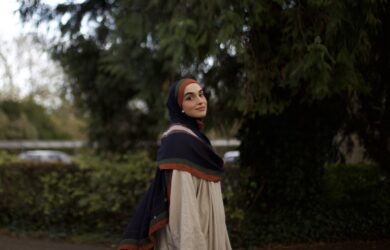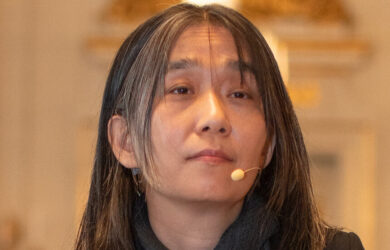Lucy says that many people associate archaeology with finding out what the elites did in the past, but excavating the everyday lives of past civilisations might make them more appealing to a wider audience.
Lucy Burgchardt is passionate about archaeology and wants to convey that to as wide a public as possible. She says that many people associate archaeology with finding out what the elites did in the past, but excavating the everyday lives of past civilisations might make them more appealing to a wider audience.
”I enjoy looking at the places where normal people lived,” she says. “These are often overlooked because they are not considered as impressive as areas with wealth and jewels.”
She is also interested in how a community living in an area of archaeological interest can be affected by a major find, for instance, through public outreach education to explain its relevance to their lives.
Lucy has just won a Gates scholarship to do an MPhil in Archaeological Science at Cambridge. Brought up in Colorado, her father taught communications at Colorado State University, and her mother was a technical writer.
She says her liking for the academic lifestyle comes from her father and her interest in archaeology is in part due to her upbringing. She caught the travel bug early – her older sister was a classical singer and got to travel abroad. Initially Lucy also turned to music as a way to travel, but then figured out studying French might be a better ticket to seeing more of the world.
Indeed, as part of her undergraduate studies in archaeology and French she lived in France for a while.
Her interest in travel was also fuelled as a child by visits to relatives around the US. Her aunt, who had been in the Navy, liked to be on the move and had lived in Japan and the Philipinnes. At one point Lucy visited her while she was living near an Indian pueblo in New Mexico. This sparked her curiosity about different places and cultures.
When she arrived at Ripon College in Wisconsin she applied for a archaeology lab assistant job and got it. She was immediately thrown in at the deep end. Eventually Emily Stovel, the professor who was supervising her work, asked her to work on a database of South American artefacts. She ended up going to a conference about this and “things snowballed from there”.
Professor Stovel suggested she attend an archaeology field school in Peru where she met leading archaeologist Donna Nash, who took her under her wing. She invited Lucy to take part in a project at Moquegua in the Peruvian Andes and provided her with research material for her final-year project. She was excavating in what would have been a middle class area of Peru in 800 AD and found ceramic shards, stone tools and volcanic glass which she subjected to scientific x-ray analysis in the lab. The x-ray analysis tracked the source of the found objects and how they had come to be in that area. That, in turn, fed into the debate about the type of state system used by the ancient Wari civilisation she was studying.
She says she is still interested in doing further research in the Andes, but also wants to explore other developing countries as part of her quest to shift archaeology away from the study of elites and make it more accessible.
Lucy has a range of outside interests. She did some drama at Ripon and was on the contemporary issues committee, organising external speakers. She also did some student counselling. She says she likes being creative and hopes to use her drama experience when she talks publicly about her archaeology work.
She found out about the Gates scholarship programme while she was on a dig in Peru. Her College contacted her and told her she would be a good fit for Gates. She applied and ended up being snowed in for four days at Annapolis during the interview process. Her aunt, who had lived in Annapolis when she was in the US Navy, took her to the interview. “She and my grandmother have always been very supportive and a huge influence,” says Lucy.
She is looking forward to being a member of the Gates community. “It’s a great network of people. It’s a coming together of very active minds and I am sure it will be very envigorating,” she says.












